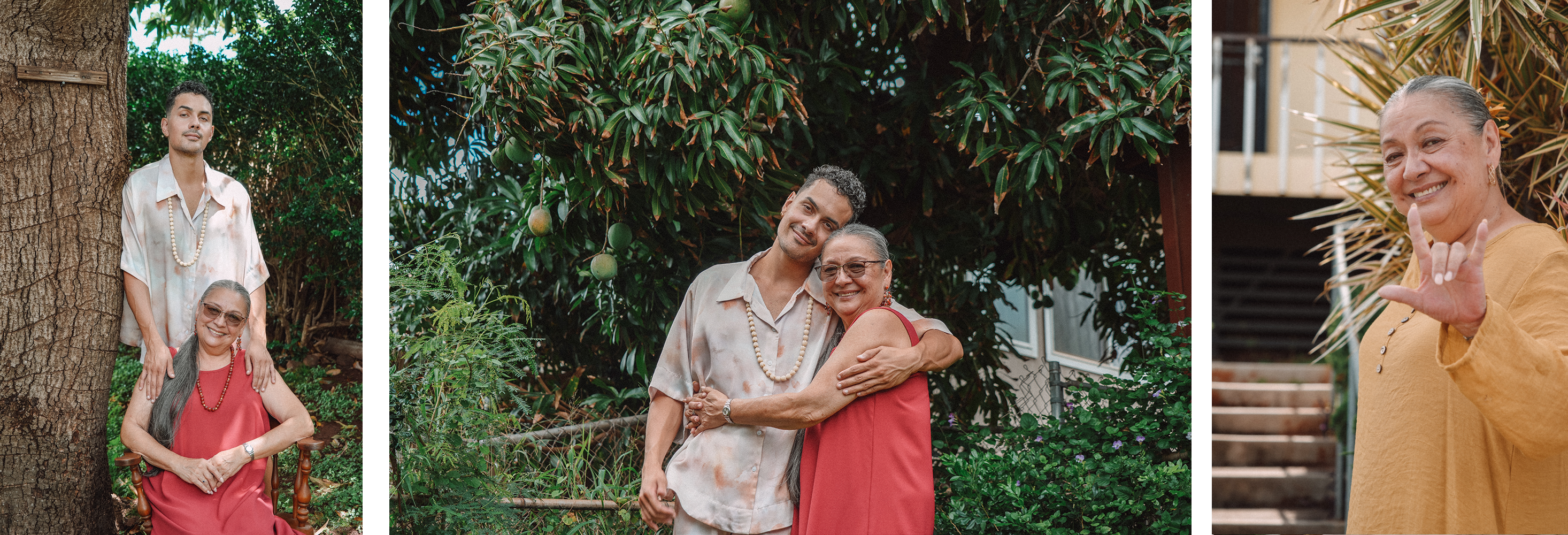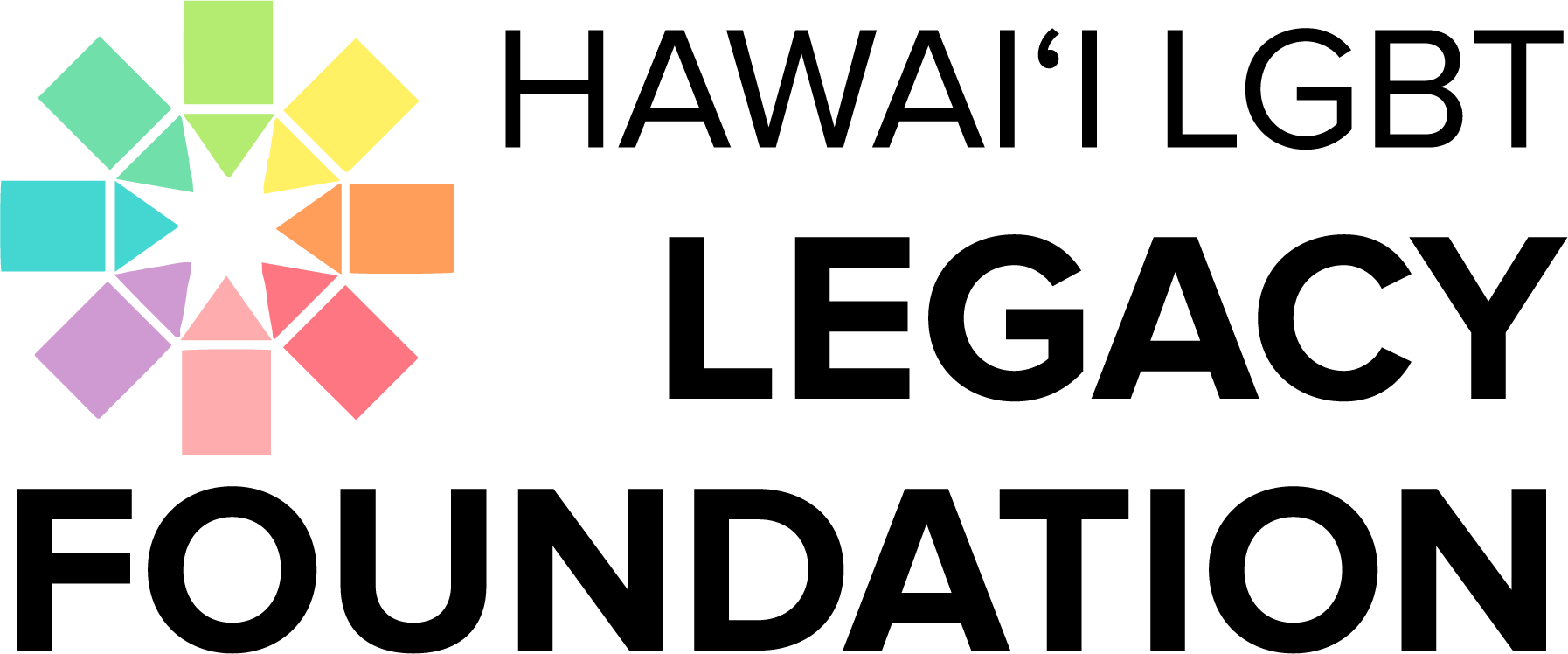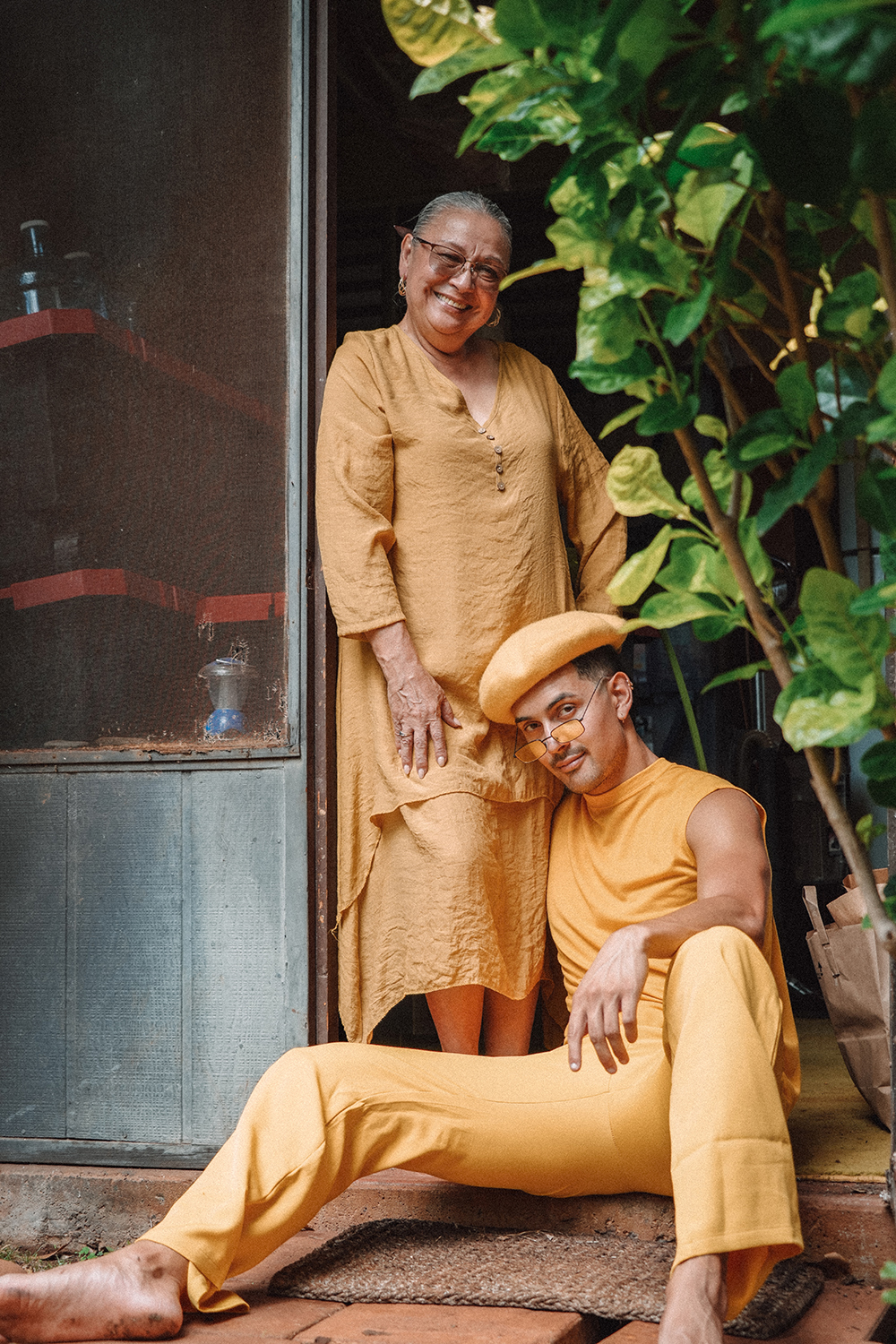A VISUAL STORY TELLING PROJECT BY MARIANA MONASI FROM PACHAMAMA CREATIVE CELEBRATING MOTHERHOOD IN ALL ITS FORMS. A PROJECT OF THE HAWAIʻI LGBT LEGACY FOUNDATION, PRESENTED BY CENTRAL PACIFIC BANK.
“Who am I? I use she/her/hers for pronounS. My fatherʻs side of the family is Choktaw Band of Mississippi, Irish, English and Scottish. On my motherʻs side, Spanish, Filipino and Chinese. Culturally I most identify with Filipino. Iʻm cis, straight, married; I have two children, Hercules is the youngest. Iʻm the only one who can call Hercules ʻHercʻ, no one else can.” — Galinda

“Communication is powerful,” says Galinda Kay Goss who is a member of the deaf community; her child Hercules grew up bilingual in ASL and English. Galinda has always been an active supporter of the LGBTQIA+ community–even performing at Pride events with Hercules–and has helped other parents accept their queer children. “Do you love your child, regardless?” sheʻll ask them. “Then just have a conversation.” Mariana met with Galinda and Hercules at their family home in Makakilo.

“Motherhood is nurturing, caregiving, taking care of their social and emotional needs…their physical needs, supporting their independence. The most important thing is communication between child and mother.” — Galinda
“In junior high school youʻd bring friends to your room. So I really let [Herc] have it. I was like, ʻItʻs not fair, youʻre taking advantage of the fact that I canʻt hear. How would you feel if I did that to you? Hello!ʻ So Herc would just be like ʻHi, can I have a friend sleep over?ʻ and Iʻd be like ʻSure, thanks for letting me knowʻ. I donʻt care what happens in that room…” — Galinda
“To be honest, growing up, I didnʻt feel like she was protecting me. I think it was because my dadʻs energy was so palpable and so raw that it overshadowed her protection. You never said any thing to defend me in the moment, but I realize that sheʻd always fight him behind closed doors. She didnʻt want to do it in front of me, to increase the trauma. But then something happened… you were always a tough woman…” — Hercules
“I know Iʻm 66, but I feel like Iʻm in my 40s. My crowd of people that I hang out with are people that are 30 and 40. And Iʻm like the oldest of the group, so they call me ʻAuntyʻ.” — Galinda

